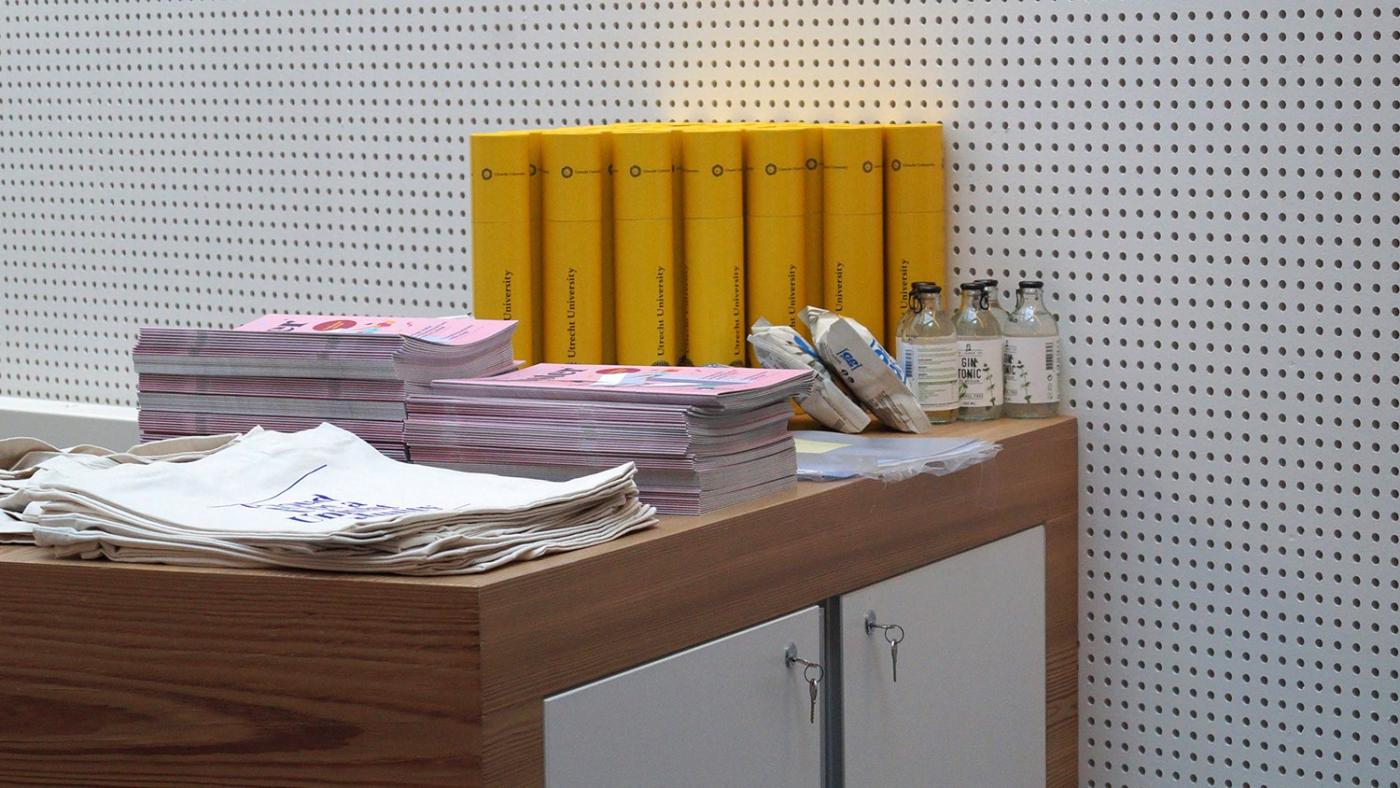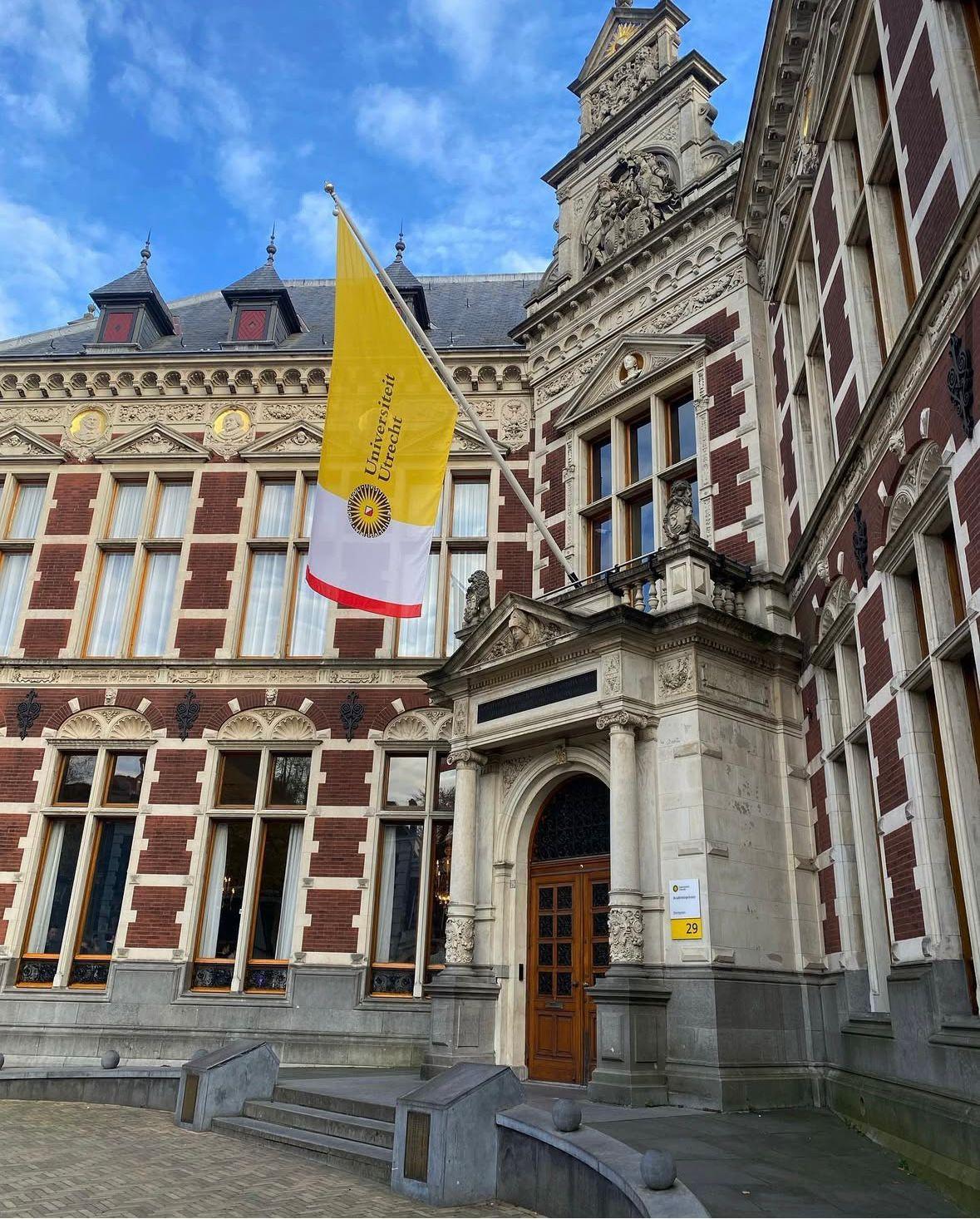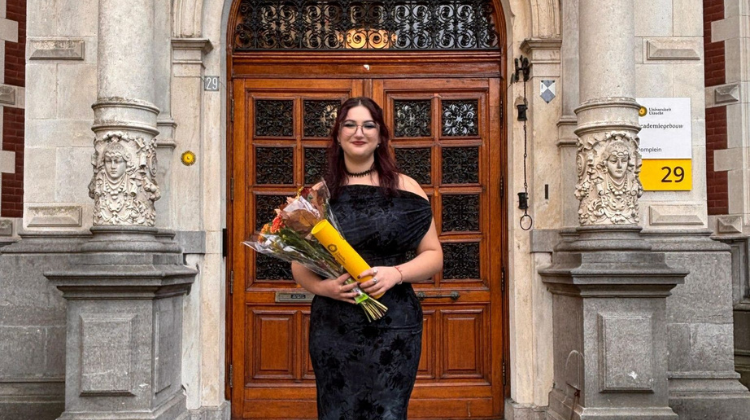Expectations versus reality
How graduation feels different for international Bachelor's students

When you type in “graduation” into your favourite search engine, watch a coming-of-age movie, or look at university websites, you will find pictures of smiling students in full cap and gown setup, smiling next to their friends. In many countries, students are accustomed to this impressive and formal ceremony.
One such country is Turkey, a culture I belong to, as I spent half my life in Switzerland as a child of Turkish parents. In Turkey, it is customary to wear a gown and cap, give speeches, celebrate with your entire graduating class, throw your cap into the air, and have a cocktail party afterwards. So, when I found out that my graduation ceremony would consist of wrinkled shirts and machine coffee, and that I would not graduate with my friends, I must say I was disappointed. This simplicity is familiar to Dutch culture, but it's a little too laid-back and anticlimactic for my expectations.
I was curious if I was the only one feeling this way, so I asked international students across different faculties if they shared the sentiment. The answer is yes, many of them do. Themes that pique their dissatisfaction include the separation of graduating students, the attire, and the programme.

Photo: 123rf
We’re (not) all in this together
After three-plus years of late-night writing, last-minute studying, love problems, overcaffeination, nights out, and mornings hungover together, most students (including me) would like to share the graduation experience with their friends and peers. However, in my studies, this is only possible if all your friends either share your last name or the first few letters of it – both unlikely circumstances. In other faculties, this selection is even more random, with no determined order. Personally, I was disheartened that I couldn’t share these precious moments with them, as we had slaved over the same assignments and supported each other throughout all these years.
My fellow Literary Studies graduate, Kamil, describes the graduation as “straightforward, serious, and quick.” Big graduation ceremonies are not a tradition in his home country, Poland, where graduates only pick up their diplomas, nothing more. For this reason, he was looking forward to a graduation ceremony abroad, but was let down. “I was a bit struck by being separated into several groups, which seems logical and efficient, but made me a bit sad to have a different timeslot than some of my friends”.
Students from other faculties feel the same: Gwyneth, a Global Sustainability Science (GSS) graduate from Singapore, said she felt disappointed when she learned that most of her friends were in the morning session and had taken group photos together. “It did make me feel left out as those are the people I spent time doing my degree with, and there are also other friends that I didn't even get to see on graduation day”.

Photo: DUB
Throw your expectations into the air, not your cap
Personally, I felt very disappointed that we didn’t have a cap to throw. My fellow Humanities graduates felt the same, but again, this feeling is not restricted to my faculty. Gwyneth says that most international graduates she knows are “very sad about not having the caps, as I have in my country.” This sparked a conversation between us about graduation attire in other countries: in Italy, graduates wear a crown, and in the Nordic countries, they wear a sailor hat. “It’s a shame we don’t have anything like that”, concludes the Singaporean student.
Since both our cultures have this tradition, Gwyneth and I feel like we couldn’t celebrate our own cultures in our graduation. There was no dress code, so, technically, we could have worn a cap if we wanted to, but it would have been weird to be the odd one out.
To make matters worse, the graduates of the Philosophy, Politics and Economics (PPE) programme were graduating in another room at the same time as us, Humanities students – and they did have caps and gowns. As we were getting ready and taking pictures, we noticed that PPE students were playing with the frills on their caps and wearing outfits that complemented their gowns. We couldn’t help but be a little envious, as they had the main indicators of graduation that we had grown up expecting to have. They had something that symbolised the formal, public acknowledgement of our hard work over the years, but we didn’t.
It appears that programmes associated with or in collaboration with University College Utrecht (UCU), such as PPE, carry American traditions, including the cap and gown, performances, and large-scale events. As a general rule, universities have a more laid-back, Dutch ceremony, while university colleges are Americanised. For example, Amsterdam University College (AUC) also has a commencement ceremony, whereas the University of Amsterdam (UVA) does not.
Another UU programme with more lavish celebrations is the Bachelor of Economics, which has a "Commencement Ceremony" at the end of the spring semester, held at TivoliVredenburg. This formal occasion includes a student beadle and representatives, as well as a reception afterwards. Caps and gowns are “not obligatory, but it is part of the tradition to wear both”, says the programme’s website. Economics students also throw their caps into the air, as per tradition.
However, even Economics students were left disappointed this year, as they got a slightly less lavish setup this time. Students didn’t receive gowns, only caps, and there was no reception afterwards. Economics graduate Pola was sad, as the reception was “a great moment to have a last chat with teachers and other students who will move abroad”. She hypothesises that this is due to the budget cuts to the university, and programme.
Flying out for a handshake
In many cases, families and loved ones want to witness graduates receive their diplomas, clapping and cheering as they do so, with big smiles on their faces. I found myself questioning whether it was worth it for my family to spend money travelling and take time off to attend my graduation, since it was only an hour-long affair that was also streamed. My parents decided to attend in the end, which made me very happy.
Anežka, a Literary Studies graduate, had a similar dilemma: “My parents drove 12 hours from the Czech Republic. In a way, it feels strange, as they did such a big journey for a small, personal ceremony which didn’t feel very formal. I had to explain to them beforehand not to expect so much”.
Despite these frustrations, I should note that this was a special moment for us graduating students. Sharing our accomplishments, clapping for everyone as they shook hands with the teachers, and hearing speeches from our supervisors are all memories we will hold dear. Some particular instances of joy include clapping extra loudly for a friend’s cum laude, the personal speech I received from the BA coordinator, and taking the ever-classic picture in front of the Academy Building with the yellow tube in my hands. If things had had a little more pomp and circumstance, it would have been even better, but these memories are treasured nonetheless.

Meltem with her diploma. Photo: courtesy of the graduate
The establishment of the Bologna Process has likely contributed to the differing levels of celebration. Before 1999, the Netherlands used a two-phase system in which the bachelor’s and master’s degrees together constituted a single, complete course of study. The second phase was the doctoral degree. In 1999, the Netherlands signed the Bologna Declaration, adopting the standardised three-cycle structure of bachelor’s, master’s, and doctoral degrees, making its higher-education system more comparable across Europe. Historically, a bachelor’s degree was not considered the completion of a full study programme. This likely explains why bachelor’s celebrations are more muted.
Comments
We appreciate relevant and respectful responses. Responding to DUB can be done by logging into the site. You can do so by creating a DUB account or by using your Solis ID. Comments that do not comply with our game rules will be deleted. Please read our response policy before responding.